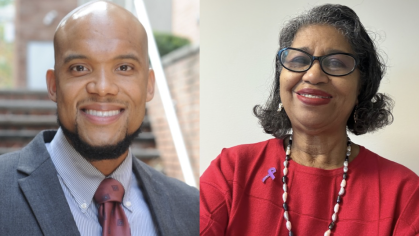Keeping Up with Cutting-Edge Technology That Supports Liberated, Welcoming Spaces for LGBTQIA+ Social Work Students
In honor of Pride Month, Jose Cruz (Senior Program Coordinator for the Rutgers School of Social Work Office of Practicum Learning) shares how social work students around the world use technology to create supportive spaces that help them thrive along their educational journey.
LGBTQIA+ social work students worldwide increasingly leverage technology to create supportive communities that transcend geographical boundaries (Craig et al., 2021; McInroy, 2019). Online platforms such as forums, social media groups, and dedicated websites provide safe spaces for these students to share experiences, seek advice, and offer mutual support (McInroy et al., 2022). For instance, the LGBTQIA+ Caucus of Social Work Students & Faculty (Q Caucus) serves as a global network for educators and scholars interested in LGBTQIA+ issues while facilitating connections and advocacy efforts through its online presence (Q Caucus, n.d.).
Research highlights the significance of these digital communities. Schaub et al. (2023) evaluated an LGBTQIA+ e-learning module, emphasizing the importance of online educational resources in enhancing cultural competence among social work students in the UK. They found that such modules effectively increase knowledge and affirming attitudes toward LGBTQIA+ individuals, underscoring the role of technology in fostering supportive learning environments.
Furthermore, online initiatives extend beyond educational modules to include webinars and workshops that address the unique challenges LGBTQIA+ individuals face. Organizations like the Gay, Lesbian & Straight Education Network (GLSEN) offer professional development opportunities through virtual platforms, enabling social work students to engage with current research and best practices related to LGBTQIA+ youth support. These technological avenues enhance the educational experience and build a sense of international community and solidarity among LGBTQIA+ social work students (GLSEN, 2019).
Many allies and members of the LGBTQIA+ communities have specialized in supporting liberated, welcoming spaces and products. Kortney Ryan Ziegler, a prominent American entrepreneur, filmmaker, and technologist, co-founded TransH4CK in 2013—a project that brings together trans individuals to collaborate on technical projects addressing transgender issues. This initiative has facilitated the development of technological solutions that directly benefit the trans community, highlighting the intersection of technology and social justice. Ziegler's work exemplifies how we can harness technological innovation to break down barriers, build connections, and empower LGBTQIA+ individuals globally (TransH4CK, 2018).
References
Craig, S. L., Eaton, A. D., McInroy, L. B., Leung, V. W. Y., & Krishnan, S. (2021). Can social media participation enhance LGBTQ+ youth well-being? Development of the Social Media Benefits Scale. Social Media + Society, 7(1), 1–11. https://doi.org/10.1177/2056305121988931
GLSEN. (2019). Championing LGBTQ issues in K–12 education since 1990. https://www.glsen.org/
McInroy, L. B. (2019). Digital media and LGBTQ+ communities. In A. E. Goldberg (Ed.), The SAGE Encyclopedia of Trans Studies. SAGE Publications.
McInroy, L. B., Leung, V. W. Y., Craig, S. L., & Eaton, A. D. (2022). LGBTQ+ youths’ community engagement and resource seeking online versus offline. Journal of LGBT Youth, 19(1), 1–20. https://doi.org/10.1080/19361653.2021.1877881
Q Caucus. (n.d.). The LGBTQ Caucus of Social Work Students & Faculty. https://www.qcaucus.com/
Schaub, J., Keemink, J. R., Stander, W. J., & Montgomery, P. (2023). Effectiveness of an LGBTQ+ e-learning module for social workers: A randomized controlled trial. Research on Social Work Practice, 35(5), 1–14. https://doi.org/10.1177/10497315231208199
TransH4CK. (2018). TransH4CK. https://www.transhack.org/



